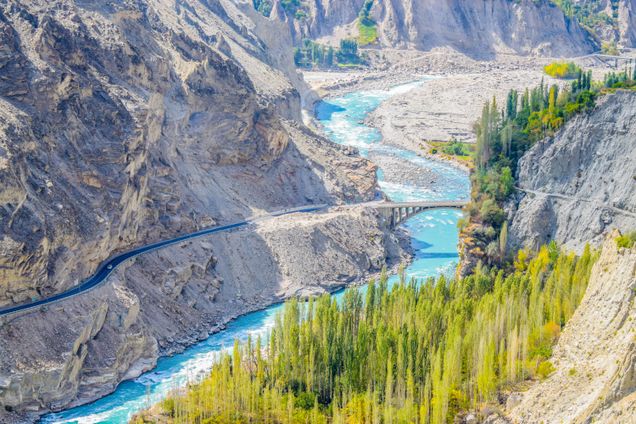The Role of the G7 in Strengthening the Global Landscape of Climate Finance for Adaptation and Loss and Damage

The year 2023 offers political momentum for strengthening the global climate finance architecture under and outside the United Nations climate change regime. In November 2022, the 27th United Nations Conference on Climate Change (COP27) marked a breakthrough on loss and damage with an agreement for establishing new funding arrangements, including a fund. Parties also recognized the need for rethinking development finance and endorsed a plea for multilateral development banks (MDBs) to reform.
In addition, parties to the UN Framework Convention on Climate Change and the Paris Agreement are negotiating a new collective quantified goal on climate finance, which is to be agreed by 2024. As Group of Seven (G7) countries are the main providers of adaptation finance, as well as the major shareholders having voting power to enable reforms of the MDBs, the G7 Hiroshima Summit in May 2023 must catalyze a debate for a systemic transformation and chart a long-term strategic outlook for the G7 states as global leaders on climate action.
This Think7 policy brief by Rishikesh Ram Bhandary, Urwah Khan, Mariya Aleksandrova, Archimedes Muzenda and Steffen Bauer discusses global challenges and presents three key proposals for the G7 on adaptation finance.
Key proposals:
- Strengthen multilateral funding under the UN climate change regime: Current funds are limited in scope with regard to losses and damages. Overall, the authors argue there is an urgent need to further policy interventions that would enable UN climate funds to broaden their coverage of climate impacts. Scaling up finance through the UN climate funds is critical for many least developed countries (LDCs) and small island developing states (SIDS) to avoid reaching soft limits to adaptation.
- Reinforce efforts to balance climate finance flows: A considerable gap remains in positioning the G7 in the global finance landscape for addressing adverse slow onset impacts such as loss of biodiversity or habitable land. Therefore, G7 countries should further their collective efforts toward balancing finance for adaptation and loss and damage resulting from both climate extremes and adverse slow climate impacts. The authors say the G7 should also commit to achieving greater geographical balance and invest in urban resilience.
- Reform MDBs to strengthen their role in providing finance for adaptation and loss and damage: G7 leaders should call on MDBs to align their strategies and operational modalities with the needs of developing countries regarding finance and technical assistance for adaptation and loss and damage. MDBs can collaborate with local partners and stakeholders in vulnerable regions, explore innovative financing mechanisms and strengthen collaboration and coordination.